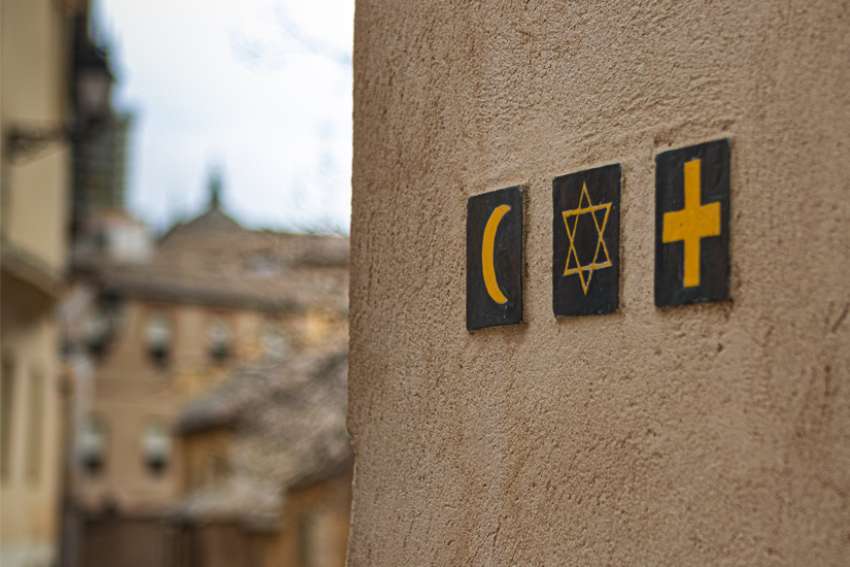Along with the global network of the pontifical foundation of Aid to the Church in Need, Lalonde marked the International Day Commemorating the Victims of Acts of Violence Based on Religion or Belief on Aug. 22.
“For Canadians, it’s difficult to talk to them about people who suffer violence because of their religion or because of their belief, because it is very, very far from our own reality,” Lalonde said.
The UN day opens up the possibility of talking about violent religious persecution, she said.
Aid to the Church in Need lobbied hard to put the day on the UN’s international calendar in 2019. The international Catholic organization uses the day to highlight the suffering of religious minorities.
“Christians in Mali, Niger, Nigeria and Burkina Faso, to name just a few, are practically living in ghettos and practicing their faith underground,” said ACN International executive president Thomas Heine-Geldern in a release.
While religious freedom issues are often associated with the Middle East and Africa, the problem is truly global, said Lalonde.
“The problem of intolerance is more prevalent around the world,” she said.
The United States Ambassador for Religious Freedom Rashad Hussain drew the same conclusion when he presented the U.S. State Department’s annual report on religious freedom issues around the world in June.
“Rising societal intolerance and hatred are fueling violence and conflict around the world. Governments must speak out and protect the vulnerable and marginalized,” Hussain said.
The problem lies in democratic decay and dysfunctional governments, according to Lalonde.
“When the government is dysfunctional they rarely have the means to protect their minorities,” she said. “If you happen to be a minority – a religious minority within a country that is very disorganized – well, you are left alone with your problems.”
Among the non-democratic governments the U.S. annual report singles out this year are the military junta running Myanmar for its continued oppression of that country’s Rohingya minority, Russia for handing out harsh jail terms to religious leaders who don’t represent an approved, historical faith, and China for genocidal treatment of its mainly Muslim Uygher population.
There are emerging problems in Latin America where the increasingly authoritarian Nicaraguan President Daniel Ortega has shut down Catholic radio stations and jailed Archbishop Rolando Álvarez, accusing him of inciting violent actors “to carry out acts of hate against the population.”
“We thought it was out of Latin America. Now we realize it is still there,” Lalonde said.
Though Aid to the Church in Need is still disappointed by the 2016 decision to close the office of Canada’s ambassador for religious freedom, they continue to engage with government, said Lalonde.
“We continue to give them some information on religious freedom issues, persecution issues,” she said. “We know that sometimes this information is used to brief people in the government.”
In 2015, the Canadian government set up the International Contact Group on Freedom of Religion or Belief. To date, more than 30 countries are on board.
“Canada is deeply concerned by the global rise of intolerance against individuals of all faiths and beliefs. This includes the persecution of religious minorities in Afghanistan, the systematic repression of Uyghur and other Muslim ethnic minorities in China, the crimes committed against the Rohingya Muslim minority in Myanmar and the alarming situation for Bahá’ís in Iran and Yemen.
“Canada condemns religious hatred, discrimination and xenophobia in all their forms,” Global Affairs said in a 2021 release.


